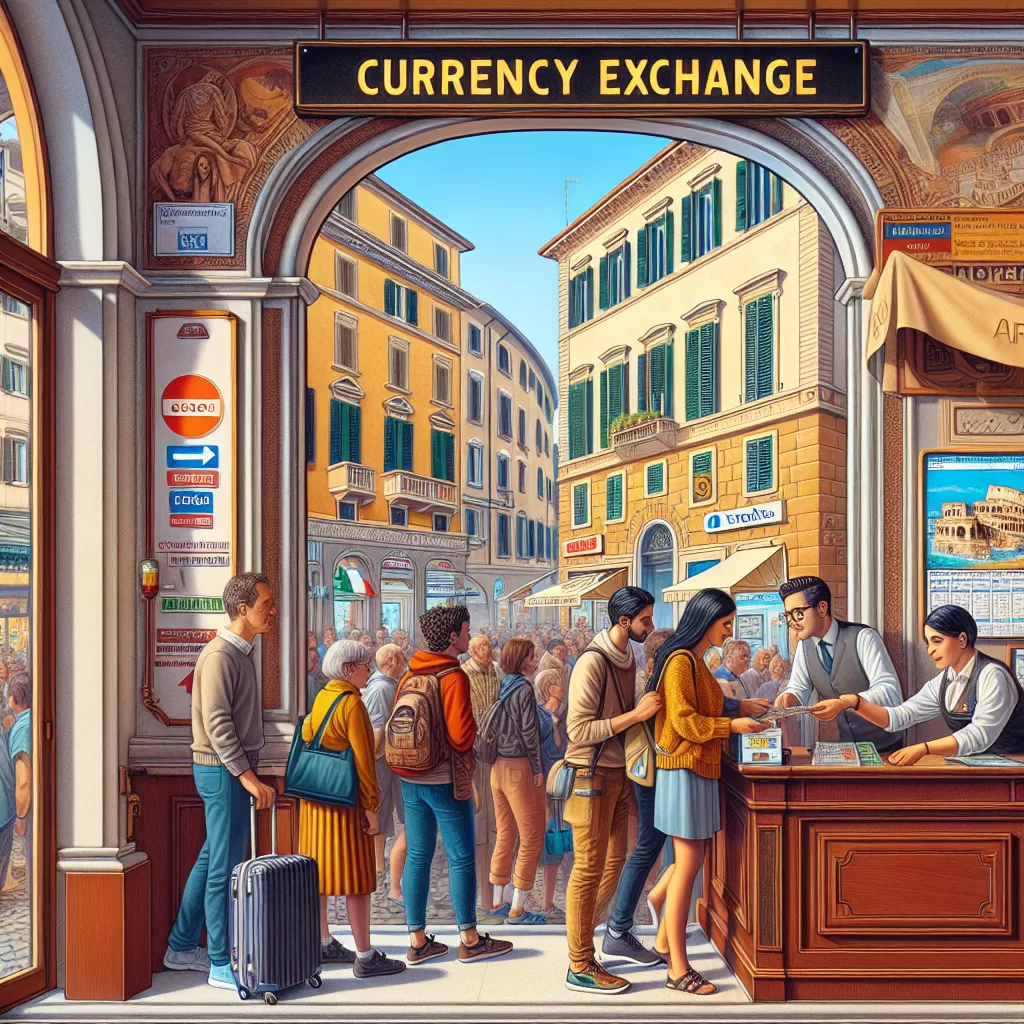Where To Exchange Money In Italy
Follow Currency Mart April 10, 2024
Where to purchase Foreign Currencies?

Introduction
Italy - a country known for its rich history, delicious cuisine, and breathtaking landmarks. As wonderful as it is to explore this paradise, one must undergo an essential process before fully embracing the Italian experience - exchanging money. As the Guardian of Money Exchange, I’ll guide you through the available options to help you get the best value for your currencies.Banks and Financial Institutions
In Italy, one of the most common places to exchange money is at banks or financial institutions. Major banks like Banca Intesa Sanpaolo, UniCredit, Banca Nazionale del Lavoro, and others have foreign exchange services. Usually, banks offer a relatively stable exchange rate. However, the drawback is the additional service fee, which can make the exchange costlier. Remember to compare the exchange rate and fees of several banks to find out which one provides you with the best deal. Also, note that banks in Italy close early and are not open on weekends.Currency Exchange Bureaus
Currency Exchange Bureaus, or "Bureaux de Change," are located in airports, train stations, and major tourist areas. These are convenient options but often offer less favorable rates due to high overheads. It can also include high fees. Travelex and Forexchange are two of the most popular bureaus in Italy. For urgency, these can be useful, but they might not be the most economical option. Make sure you understand the exchange rate and commission involved, which should be clearly indicated.ATMs
ATMs (Automated Teller Machines), known as Bancomats in Italy, are another good option. They furnish cash directly in Euros, making it handy for immediate needs. ATMs are widely accessible throughout the country. However, be aware your home bank and Italian bank might both levy fees. Card providers might charge variable foreign transaction fees, hence, understanding your bank policy before using an ATM is advisable.Online Currency Exchange Platforms
Online platforms also function as great alternatives. Paypal, Revolut, and Transferwise are some online platforms available for exchanging money. They facilitate the process, often offering better rates than traditional service providers. These platforms allow you to monitor fluctuations and even set alerts when your desired exchange rate is hit. Make sure you audit the transaction fees, which can depend on the amount of money exchanged and the method of transfer.Local Post Office
An overlooked but effective choice for currency exchange is the local Post Office. In Italy, they offer foreign exchange services, especially in more remote regions, devoid of substantial banking facilities. Post offices proffer distinct advantages - competitive exchange rates and marginal fees.Prepaid Travel Cards
Lastly, consider prepaid travel cards, which let you load money on in your desired currency. Cards like Visa TravelMoney, Mastercard Cash Passport, and Revolut are advantageous as they lock-in the rate at the time of loading. It can turn fruitful if the home currency value decreases. These cards are commonly accepted and can be recharged online. Ascertain to inspect all associated fees.Conclusion
In the world of foreign exchange, there's a place for everyone, from traditional banks to omni-present ATMs, from convenient exchange bureaus to modern online platforms. But the key to a successful exchange is understanding the rate, evaluating the fees, and selecting the option that provides the most convenience and best value for you. So now that you're informed, step out into the beauty of Italy, ready to embrace your Italian adventure in its heartwarming entirety.
Where to purchase Foreign Currencies?